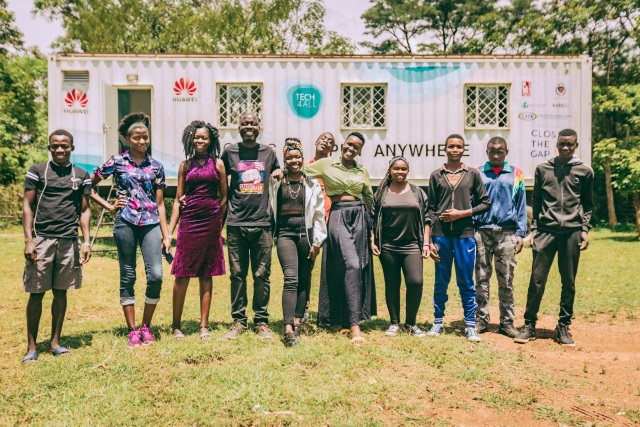DigiTruck Project awarded for providing Kenyan girls with ICT skills

Kenya’s DigiTruck program has been recognized for increasing the number of women studying for technology courses and working in the ICT industry. The Global Mobile (GLOMO) Award singled out the project’s excellent progress in reaching and facilitating a higher population of women to pursue technology courses and gain ICT skills.
Hosted by GSMA, the GLOMO awards recognize the innovative and outstanding contributions of organizations that change how people, communities, and businesses interact and evolve in a digital-first world. Each year, GLOMOs are awarded at the Mobile World Congress in Barcelona, Spain.
Run by Huawei Kenya in partnership with Safaricom, Kenya’s Ministry for ICT, Computer for Schools Kenya, and the international NGO Close the Gap, the program given the accolade for its contribution towards achieving the United Nations Sustainable Development Goals (SDGs).
“We are committed to contributing to the UN SDGs; we provide connectivity, innovative solutions, and the digital skills that empower our customers in a digital world. This win is a remarkable recognition of our efforts together with Huawei and other partners in connecting our people digitally,” said Peter Ndegwa, Safaricom Chief Executive Officer.
The DigiTruck program is geared at SDG 4, ensuring inclusive and equitable quality education and promote lifelong learning opportunities for all. The award cited that improved digital skills are essential to improving employment prospects for job seekers and empowering low-income communities with online business models – skills that can in turn help lift people out of poverty. While the majority of programs aim for an equal ratio of male and female trainees, courses are also available for specifically for girls and women, for whom a lack of digital skills tends to be more acute. In 2021 and in partnership with Women in Technology, DigiTruck provided training for 55 women in the remote sub county of Garbatulla
Since its commencement in 2019, more than 2,300 students have received over 80,000 hours of training across 19 counties in Kenya. Each 40-hour course covers basic digital literacy skills, including how to use smartphones, the Internet, email, and office software as well as providing guidance on e-waste management. The training also covers a range of essential soft skills such as drafting business documents, searching for jobs online, and starting an online business.
“Technological advancement promises disruption across sectors, requiring more complex skills. Through the Digitruck project the Kenyan youth have showcased their thirst for digital skills. Therefore, we are committed to work together with the Kenyan government and third parties to achieve a fully connected and integrated world where every person, home and organization have digital access.,” stated Will Meng, Huawei Kenya Chief Executive Officer.
Converted from a used shipping container, the DigiTruck is a mobile classroom that provides training in digital skills for individuals and communities that need them most. It accommodates 20 workstations and comes equipped with computers, tablets, smartphones, and an Internet connection via Huawei’s Fixed Wireless Access solution – all fully solar-powered, so that communities that lack a power supply can also benefit.
This is the second year in a row that Huawei has won the award for Outstanding Contribution to UN SDGs. In 2021, Rainforest Connection and Huawei won the award for the TECH4ALL Nature Guardian project, which uses networked acoustics technology to protect endangered species and ecosystems from threats such as illegal logging and poaching. The project comes under the education domain of Huawei’s digital inclusion initiative TECH4ALL. Aligned with the SDGs, TECH4ALL aims to ensure that no one is left behind in the digital world by developing skills, applications, and technologies in the domains of education, environment, health, and development.





